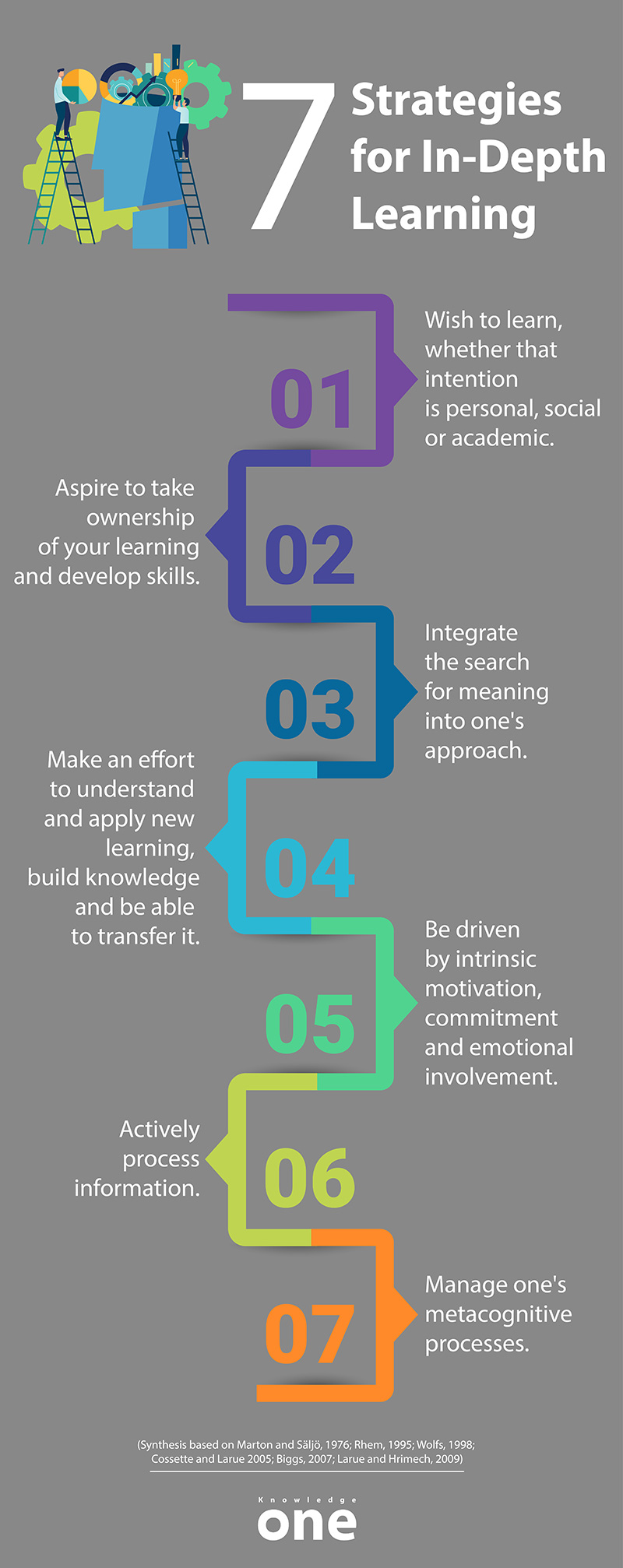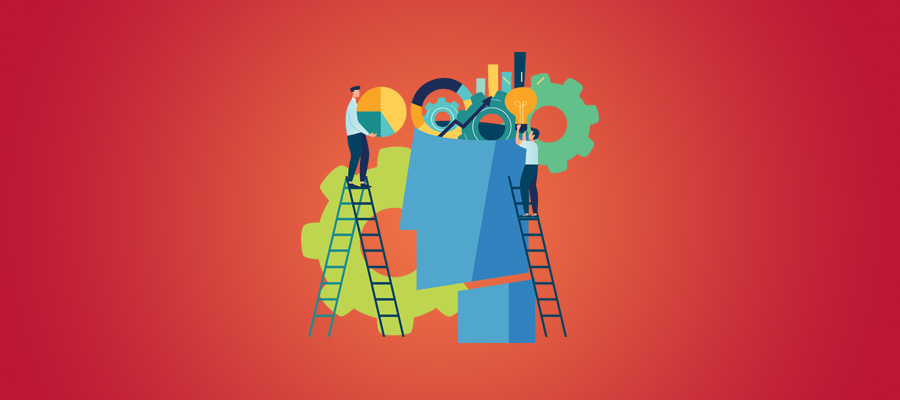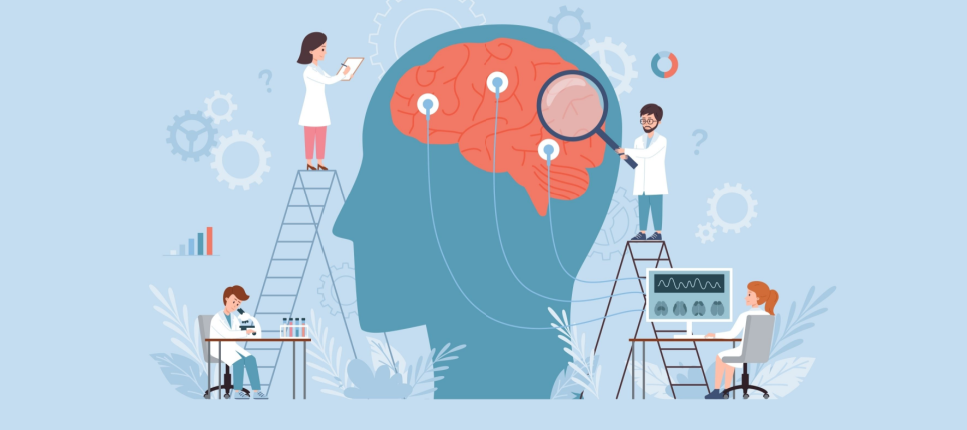We owe the notions of surface and in-depth learning to Ference Marton and Roger Säljö, two Swedish researchers from the field of psychology. They were the first to find that the adoption of in-depth learning strategies was associated with a higher level of student success than so-called “surface” learning. Here are seven strategies that are essential for in-depth learning.

- Wish to learn, whether that intention is personal, social or academic.
- Aspire to take ownership of your learning and develop skills.
- Integrate the search for meaning into one’s approach.
- Make an effort to understand and apply new learning, build knowledge and be able to transfer it.
- Be driven by intrinsic motivation, commitment and emotional involvement.
- Actively process information: take a global view of learning, find and organize resources, analyze, identify key concepts, make links between knowledge, etc.
- Manage one’s metacognitive processes.
(Synthesis based on Marton and Säljö, 1976; Rhem, 1995; Wolfs, 1998; Cossette and Larue 2005; Biggs, 2007; Larue and Hrimech, 2009)
Our detailed article on this subject:
Related articles:
- Metacognition 101
- Metacognition in 3 Questions
- Develop Your Metacognitive Skills
- The importance of emotions in learning
- 6 Thoughts about Engagement in eLearning
- 8 key elements of learner engagement
- Artificial intelligence: from manual programming to deep learning
- Mini glossary of artificial intelligence
- Cognitive Bias: When Our Brain Plays Tricks On Us
- The 3 Speeds of Thought
- The adult brain learns best with stories
- Deciphering Attention
- Attention, in numbers
- Learning and Forgetting: New Perspectives on the Brain
- 8 Types of Memory… to Remember!
- The fascinating brain: 5 amazing facts
Author:
Catherine Meilleur
Creative Content Writer @KnowledgeOne. Questioner of questions. Hyperflexible stubborn. Contemplative yogi.
Catherine Meilleur has over 15 years of experience in research and writing. Having worked as a journalist and educational designer, she is interested in everything related to learning: from educational psychology to neuroscience, and the latest innovations that can serve learners, such as virtual and augmented reality. She is also passionate about issues related to the future of education at a time when a real revolution is taking place, propelled by digital technology and artificial intelligence.






